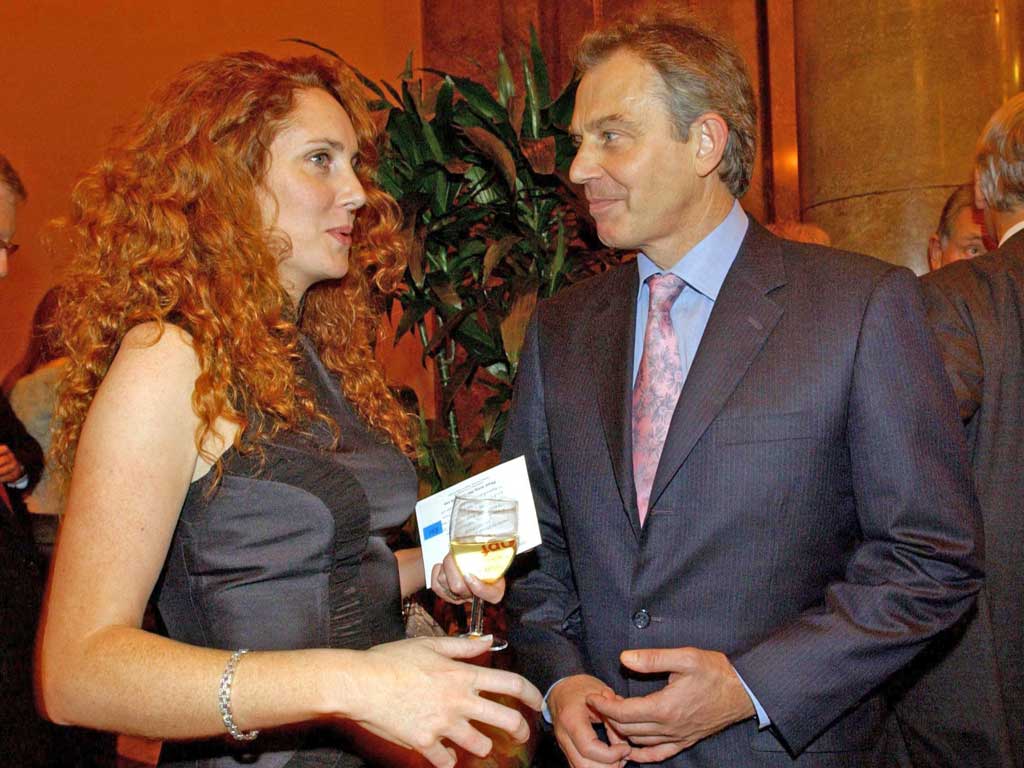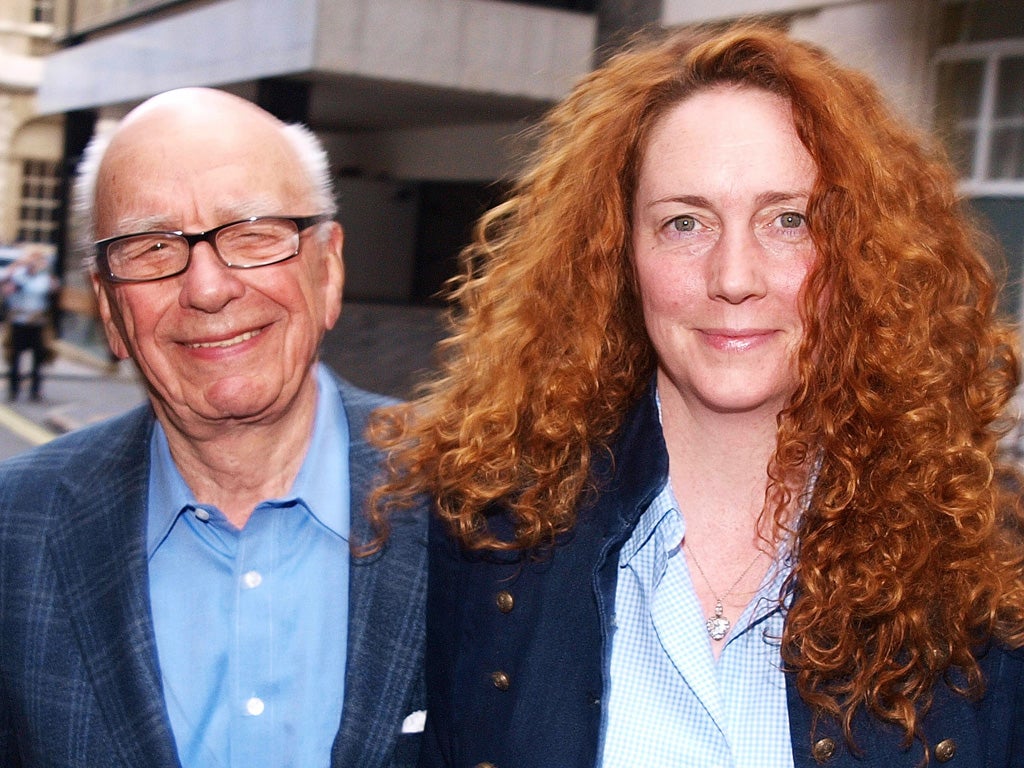Rebekah Brooks cleared in phone hacking trial: What next for the flame-haired Murdoch 'chosen one' who became the most powerful woman in the British media?
She charmed both the horse-riding David Cameron and 'unofficial adviser' Tony Blair

As Rebekah Brooks walked out of the Old Bailey as a free woman today, the obvious question was “What will she do next?”
For the past three years, since the most powerful woman in British newspapers was arrested, she has been forced out of the media machine which has been her entire life. Cleared of all charges against her, she can now return.
Rupert Murdoch was prepared to fly to London to be at Brooks’s side at the height of her distress in July 2011 and – when asked his priority – to put his arm around her and say “this one”. We can be certain he would welcome her back to his fold.
But it might not be that simple. Although Brooks’s former colleagues have no doubt of Rupert’s affection for her, his News UK publishing stable is trying to create a new corporate culture that distances itself from the hacking scandal which nearly destroyed it. There are more criminal trials to come and, even as an innocent party, Ms Brooks does not help that new image.
A role in Mr Murdoch’s US operations might appeal to her ambitions but her arrival at 21st Century Fox would not necessarily be welcomed by Rupert’s son James, who does not have happy memories of his traumatic time at News International working alongside Brooks. Rupert’s daughter Elisabeth, another key figure in the family business, is reported to have accused Rebekah of having “f***ed the company”.
Ms Brooks may have to be patient – even if her return to her former employer appears dependent on an 83-year-old maintaining his grip on his global empire.
She became a parent two and a half years ago when her daughter Scarlett was born to a surrogate mother a few months after her arrest. Brooks, 46, has never enjoyed a family life without the threat of these legal proceedings and the possibility of a custodial sentence. She has a chance of some normality now.

What is clear is that, after months of high drama at the Old Bailey, she has avoided the fate of being cast as the arch-villainess of any film adaptations of the hacking scandal.
A “Not Guilty” verdict may not have been the outcome film producer Gene Kirkwood hoped for after he optioned rights to a 2012 Vanity Fair magazine profile which introduced Ms Brooks to the American public and attempted to unravel the enigma of this remarkable British newswoman. “She’s a great story,” he told The Hollywood Reporter. “Her rise... is almost like Great Expectations – with a moral.” The magazine article talked of its subject’s “incandescent ambition” and was headlined “Untangling Rebekah Brooks”.
With her distinctive glorious corkscrew mane, the most famous woman in the British media is often described as Titian-haired and – like the subjects of the Venetian master - she has held the public transfixed. She exercised a similar hold over some of the most powerful men in the worlds of politics and media. She will be wondering how they might help her now.
The men she has charmed included the Prime Minister David Cameron, who sent her affectionate texts - including one that talked of his “fast, unpredictable and hard to control but fun” ride on her horse. After his public apology over his appointment of Andy Coulson today, the Prime Minister will find it awkward to resume his friendship with Ms Brooks.
Tony Blair was so close to her that he was privately promising to act as her “unofficial adviser” when the hacking scandal was at its height. They were in almost daily contact and often signed off texts with an x.
Her network is extensive. Along with key friends such as the PR man Matthew Freud, Brooks assembled the “Chipping Norton set”, an exclusive clique of political and media figures which mingled at social gatherings in the Cotswolds, where she lived with her racehorse training husband Charlie. In an article in the society magazine Tatler in 2009 it was revealed that the couple liked to fly to Venice for lunch at Harry’s Bar before enjoying a spot of shopping and heading back to London in time for dinner in Jermyn Street.
When Scotland Yard made its original hacking arrests in 2006, she had already had a sparkling career, becoming the first female editor of The Sun. She was promoted to chief executive of News International in 2009, making her the most powerful woman in British newspapers. When the company’s largest-selling title, the News of the World, was closed down in disgrace two years later, Rupert Murdoch was adamant that no blame should fall on his adored protégé – even if her immediate boss during the handling of the scandal, Rupert’s second son James, was facing calls for his own resignation. “I’m not throwing innocent people under the bus,” he said, rejecting her initial offer to quit, although political pressure later forced her to resign.
Although Brooks’s network means she will have work options beyond News Corp, she has devoted her career to the company. After school in Warrington she briefly lived in Paris and her Who’s Who entry says she studied at the Sorbonne (where she attended a language course). It was an indication of her uncompromising ambition. She joined the News of the World as a secretary at the age of 20 and, a little more than a decade later, became editor.
During the Old Bailey proceedings, Brooks’s barrister, Jonathan Laidlaw QC, complained that his client was being portrayed as an “arch-criminal” starring in a “pantomime”. If she remains on the stage of British life there will be many who will continue to hiss and boo at the sight of her. But at least this still enigmatic figure is free to come and go as she pleases.
